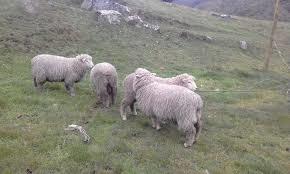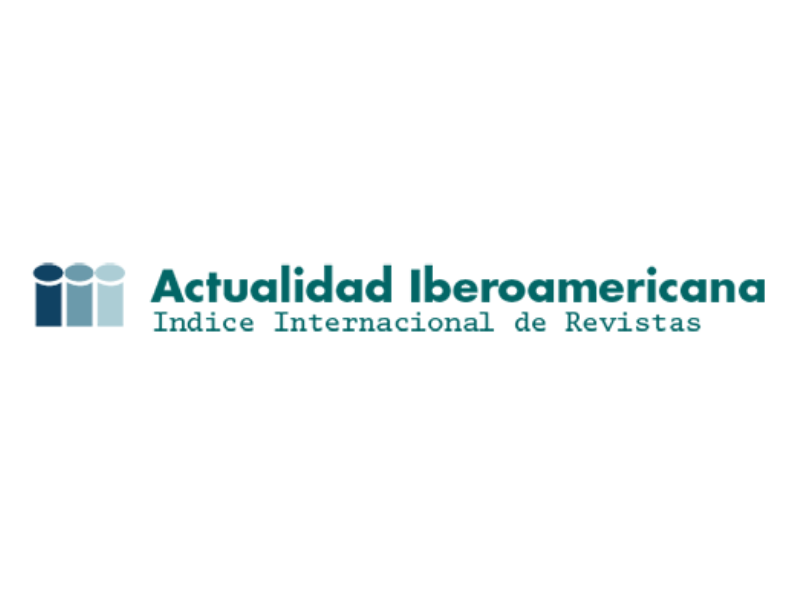Application of a knowledge Management system in sheep and goat producers in Colombia
Aplicación de un sistema de gestión del conocimiento en productores ovinos-caprinos en Colombia


This work is licensed under a Creative Commons Attribution-NonCommercial-ShareAlike 4.0 International License.
Show authors biography
Objective. Knowledge management contributes to the generation of competitive advantages in sheep-goat production systems. Materials and methods. With 66 producers, the effect of applying a knowledge management model on its level and use was evaluated. The construction of the model involved 4 phases: Characterization of the producers, Management with information systems and analysis of indicators, Intervention with knowledge management and Monitoring and evaluation; In these, the analysis of three (3) types of producers was developed: with a conventional technical assistance system, intervened and without intervention, evaluating them in terms of the level and use of appropriate knowledge. Results. The group that actually worked on the knowledge management model that aims to appropriate, exchange and combine the tacit with the explicit, accept that their level and use of knowledge was modified compared to what was expressed by those who contemplated a conventional technical assistance model or the that they did not have (p<0.05). Conclusions. Continue developing works of this type that contribute to the management and construction of tacit knowledge at different levels based on the experiences and internalization of explicit knowledge.
Article visits 558 | PDF visits
Downloads
- Flórez M, Contreras P, Uribe G. Perspectivas tecnológicas y comerciales para la cadena productiva de ovinos y caprinos en Colombia. Mosquera, Corpoica; 2016. https://www.produccion-animal.com.ar/produccion_caprina/produccion_caprina/196-Colombia.pdf
- Moreno C, Grajales H. Caracterización del proceso administrativo y de mercado en los sistemas ovinos del trópico alto colombiano. Rev Cienc Anim. 2014; 7(1):85-98. https://ciencia.lasalle.edu.co/ca/vol1/iss7/6
- Staiger-Rivas S, Alvarez S, Arana JA, Howland F, Cunha F, Valencia B, Muñoz LA, Feijóo K. Diseño de intervenciones de gestión del conocimiento en la investigación agrícola para el desarrollo: Metodología, experiencias y lecciones aprendidas. KM4D Journal. 2014; 10(1):36-51. https://www.km4djournal.org/index.php/km4dj/article/view/180
- Benítez O, Martínez R, Herrera G, Páez F, del Busto Concepción A. Estrategia para implementar la gestión del conocimiento en el Sistema de Innovación Agropecuario Local. COODES. 2020; 8(1):45-56. https://coodes.upr.edu.cu/index.php/coodes/article/view/267/545
- Sheng W. Antecedents of ISD team performance: Knowledge management activities. Human Systems Management. 2016; 35: 51-64. https://doi.org/10.3233/HSM-150854
- Zhao J, Xi X, Tao G. The impact of focal firms centrality and knowledge governance on innovation performance. Knowl Manag. Res. Pract. 2018; 16(2): 196-207. https://doi.org/10.1080/14778238.2018.1457004
- Weinreich R, Groher I. Software architecture knowledge management approaches and their support for knowledge management activities: A systematic literature review. Inf Softw Technol. 2016; 80:265-286. https://doi.org/10.1016/j.infsof.2016.09.007
- Young M. The formation of concern for face and its impact on knowledge sharing intention in knowledge management systems. Knowl Manag Res Pract. 2014; 12(1):36–47. https://doi.org/10.1057/kmrp.2012.50
- Lin H. Examining the factors influencing knowledge management system adoption and continuance intention. Knowl Manag Res Pract. 2013; 11(4): 389–404. https://doi.org/10.1057/kmrp.2012.24
- Choi H, Ahn J, Jung S, Kim J. Communities of practice and knowledge management systems: effects on knowledge management activities and innovation performance. Knowl Manag Res Pract. 2020; 18(1):53-68. https://doi.org/14778238.2019.1598578
- Donate M, Guadamillas F. An empirical study on the relationships between knowledge management, knowledge-oriented human resource practices and innovation. Knowl Manag Res Pract. 2015; 13(2):134–148. https://doi.org/10.1057/kmrp.2013.36
- Kamasak R, Yozhat U, Yavuz M. Knowledge process capabilities and innovation: testng the moderatig effects of environmental dynamisn and strategic flexibility. Knowl Manag Res Pract. 2017; 15(3):356-368. https://doi.org/10.1057/s41275-017-0068-4
- SimanJorang T, Ihram, Waluyati R, Mulyo H. Comparative and competitive advantages of nutmeg farming in two regions in Maluku Province, Indonesia. Biodiversitas. 2020; 21(3):1165-1173. https://doi.org/10.13057/biodiv/d210342
- Cetinkaya G, Nakamura K, Kambu A, Daisuke A, Daisuke U. Traditional knowledge and landscape management: evaluation and measurement of traditional knowledge on edible wild plants and mushrooms in the Satoyama ecosystems in the Noto Peninsula, Japan. J Environ Plan Manag. 2012; 55(2):141–160. https://doi.org/10.1080/09640568.2011.586417
- Li X, Qiang Q, Huang L, Huang C. How Knowledge Sharing Affects Business Model Innovation: An Empirical Study from the Perspective of Ambidextrous Organizational Learning. Sustainability. 2022; 14 (10):6157. https://doi.org/10.3390/su14106157
- Girard N. Knowledge at the boundary between science and society: a review of the use of farmers’ knowledge in agricultural development. J. Knowl. Manage. 2015; 19 (5): 949 – 967. https://doi.org/10.1108/JKM-02-2015-0049
- Mtega W, Ngoepe M. Knowledge management best practices among rice farmers in selected areas of Tanzania.J. Librariansh. Inf. Sci. 2020; 52(2):331-344. https://doi.org/10.1177/0961000619856087
- Nonaka I. A dynamic theory of organizational knowledge creation. Organization Science. 1994; 5(1):14-37. https://www.svilendobrev.com/1/Nonaka_1994-Dynamic_theory_of_organiz_knowledge_creation.pdf
- Munyua H, Stilwell C. Three ways of knowing: Agricultural knowledge systems of small-scale farmers in Africa with reference to Kenya. Library Information Science Research. 2013; 35(4):326–337. https://doi.org/10.1016/j.lisr.2013.04.005
- Ospina O, Grajales L. Efecto de dos modelos de gestión sobre fuentes de conocimiento tácito y explícito en productores de ovinos y caprinos. Cienc Tecnol Agropecu. 2018; 19(2):331-345. https://doi.org/10.21930/rcta.vol19_num2_art:597
- Wallander L. Uncovering social workers’ knowledge use: A study of the tacit-explicit dimension of social workers’ professional judgements. SWSSR. 2022; 22(3). https://journals.whitingbirch.net/index.php/SWSSR/article/view/1638
- Flores L, Jiménez S, Jacobo. Gestión del conocimiento e innovación en las organizaciones agrícolas un estudio empírico en el sector rural del Noroeste de México. Cuadernos de Desarrollo Rural. 2020; 17. https://doi.org/10.11144/Javeriana.cdr17.kmia
- Ospina O, Grajales H, Manrique C. Gestión del conocimiento: mayor producción y competitividad. Perspectivas para los sistemas de producción ovino-caprinos. Revista de Medicina Veterinaria. 2021; 22:95-113. https://doi.org/10.19052/mv.564
- Vega C, Grajales H, Afanador G. Prácticas ganaderas en sistemas de producción en ovinos y caprinos: desafíos para el mejoramiento de la competitividad del sector en Colombia. Rev Cienc Anim. 2014; 8:41-65. https://ciencia.lasalle.edu.co/cgi/viewcontent.cgi?article=1093&context=ca
- Silva S., Kovaleski L, Gaia S, García M, de Andrade J. Technology transfer and knowledge management in technological innovation center: A case study in Brazil. Journal of Management and Strategy. 2013; 4(2):79-87. http://dx.doi.org/10.5430/jms.v4n2p78
- Kohsaka R, Tashiro A, Rogel M, Uchiyama Y. Sustaining diverse knowledge systems in SEPLs: sharing tacit knowledge of apiculture and mushroom production with future generations. En Saito O. (editores) Sharing Ecosystem Services, Science for Sustainable Societies. Springer Nature Singapore. 2020. https://doi.org/10.1007/978-981-13-8067-9_6
- Shu C, Page AL, Gao S, Jiang X. Managerial ties and firm innovation: is knowledge creation a missing link?. J. Prod. Innov. Manage. 2011; 29(1):125-143. https://doi.org/10.1111/j.1540-5885.2011.00883.x
- Kragh H.The most philosophically of all the sciences: Karl Popper and physical cosmology. 2012; 21(3): 325-357. http://philsci-archive.pitt.edu/id/eprint/9062
- Popper K. Three worlds. The tanner lectures on human values. The University of Michigan. 1978; 1:141-67. https://tannerlectures.utah.edu/_resources/documents/a-to-z/p/popper80.pdf
- Osinga F. Science, Strategy and War: The Strategic Theory of John Boyd. 1st Edition. Routledge. 2007. https://doi.org/10.4324/9780203088869
- da Costa J, Sardo I, Florisbal I. A influência de John Boyd na política externa e de segurança dos Estados Unidos: cosmovisão, teoria e grande estratégia. Conjuntura Austral. 2019; 10(51):28-45. https://doi.org/10.22456/2178-8839.93027
- Ospina O, Grajales H. Propuesta de un sistema de gestión del conocimiento (SGC) para productores. Tesis para obtar al título de doctor en Salud y Producción Animal, Universidad Nacional de Colombia. 2015. https://repositorio.unal.edu.co/handle/unal/59102
- Ospina O, Montoya A, Montoya I, Grajales H. Reflexiones sobre la gestión de conocimiento y los sistemas de producción ovina y caprina en Colombia. Veterinaria y Zootecnia. 2014; 8(2):1-14. https://doi.org/10.17151/vetzo.2014.8.2.1
- Alavi M, Leidner E. Review: Knowledge management and knowledge management systems: Conceptual foundations and research issues. MIS Quarterly. 2011; 25(1):107-136. https://doi.org/10.2307/3250961
- Vallejo, P. Medicion de actitudes en psicologia y educacion. Tercera edición. Madrid, España: Comillas; 2006.
- Elejabarrieta F, Iñiguez L. Construcción de escalas de actitud, tipo Thurstone y Likert. Centros de Estudio de Opinión. 2010. https://revistas.udea.edu.co/index.php/ceo/article/view/6820
- Gauchi V. Aproximación teórica a la relación entre los términos gestión documental, gestión de información y gestión del conocimiento. Revista Española de Documentación Científica. 2012; 35(4):531-54. https://doi.org/10.3989/redc.2012.4.869
- Greco M, Cricelli L, Grimaldi M. A strategic management framework of tangible and intangible assets. European Management Journal. 2013; 31(1):55-66. https://doi.org/10.1016/j.emj.2012.10.005
- Bratianu C. Knowledge Dinamics. Management Dynamics in the Knowledge Economy. 2016; 4(3):323-337. https://www.managementdynamics.ro/index.php/journal/article/view/182
- Nonaka I, Nishihara H, Kawada H. Knowledge Based Management Theory. En Knowledge creation in public administrations. Innvatove Government in Southeast Asia and Japan. Nishihara H, Matsunaga M, Nonaka I, Yokomichi K editores. Switzerland. Palgrave Macmillan Cham. 2018. https://doi.org/10.1007/978-3-319-57478-3
- Koskinen K. Knowledge Production in Organizations. Knowledge and knowledge management. Springer: New York; 2013. https://doi.org/10.1007/978-3-319-00104-3_8
- AhmadYousefi R, Choobchian S, Chizari M, Azadi H. The role of knowledge management in the development of drought crisis management programmes. Knowl Manag Res Pract. 2020; 20(2):177-190. https://doi.org/10.1080/14778238.2020.1832871
- Vila M, Guagliano L, Galante O, Morales A, Adrián A. Transferencia de tecnologías a una cooperativa en Argentina: un estudio de casos. J Technol Manag Innov. 2013; 8:18-28. https://doi.org/10.4067/S0718-27242013000300018
- Refaiy M. The effect of tacit knowledge characteristics on tacit knowledge transfer: an empirical study within egyptian industry. J Am Sci. 2011; 7(1):247 -263. https://doi.org/10.7537/marsjas070111.35
- Mtenga P, Ngoepe M. Knowledge management best practices among rice farmers in selected areas of Tanzania. J Librarianship Inf Sci. 2019; 52(2):331-344. https://doi.org/10.1177/0961000619856087























